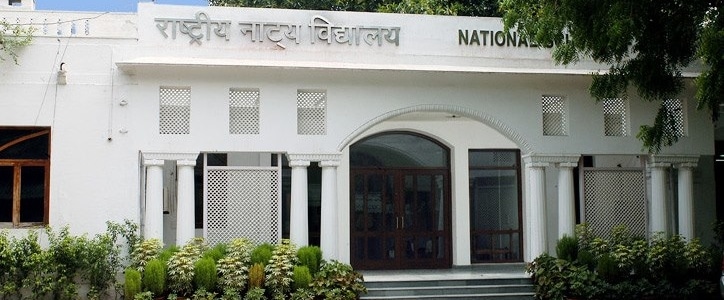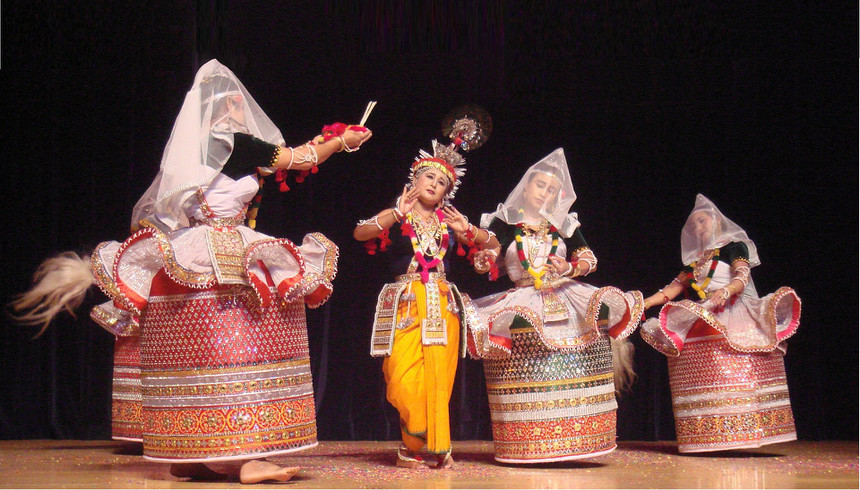Parliament panel suggests AICTE-like body, central university for arts education
R. Radhika | February 12, 2022 | 03:35 PM IST | 4 mins read
Budget Session 2022: The report tabled in Parliament also recommends that the NCERT, SCERT and NCTE should together design school curriculum for arts.

NEW DELHI: An all India-level regulatory body, a central university dedicated only to the arts, compulsory arts education up to Class 10, and establishing dedicated departments across universities are some of the reforms suggested by a Parliamentary panel to encourage education in performing arts and fine arts in India.
The parliamentary standing committee on education, women, children, youth, and sports in its latest report titled Reforms in Education of Performing and Fine Arts, has recommended various measures to encourage the field of arts in educational institutions. The report was tabled in Rajya Sabha and Lok Sabha during the ongoing Budget session, on February 9.
The panel suggested that the government make arts education a compulsory subject up to Class 10 and provide adequate infrastructure in every school. “The committee notes that Art education has the immense possibility to develop a creative and vibrant learning environment in schools; however there has been a lack of clear vision and inadequacies in the Art education policies, curriculum guidelines, and teaching strategies have been framed and implemented so far,” the report said.
In its recommendation, the committee asked the education ministry to explore the possibility of setting up a central university like Rashtriya Kala Vishwa Vidyalaya or the National University of Arts through an Act of Parliament with regional centres at prominent cultural locations.
The house panel further observed the need to change the curriculum to “dispel the colonial framing of art education” and promote the field not just as a hobby but as a lucrative profession. “The committee observes that there is a need to develop performing arts and fine arts as viable career options and to attract more students to this field,” the report says.
Also Read| COVID-19: Funds, tests, school clustering in education ministry’s ‘learning recovery plan’
The suggested reforms, the panel pointed out, are a step towards implementation of the National Education Policy, or NEP 2020, that emphasises on the promotion of Indian languages, arts, and culture.
Arts education in school
To incorporate arts in school education, the National Council of Educational Research and Training (NCERT), State Councils of Education Research and Training (SCERT), and the National Council for Teacher Education (NCTE) should conduct a national consultation, the panel recommended. Designing of performing and fine arts educational curriculum should be undertaken considering regional and language sensibilities, the panel said. Developing the curriculum, the panel said, can help students not only appreciate and understand the arts better but also take it up as a vocation.
 The Parliamentary panel in its report emphasised on promotion of dance, music, visual arts, especially traditional and folk arts (Photo: Wikimedia Commons)
The Parliamentary panel in its report emphasised on promotion of dance, music, visual arts, especially traditional and folk arts (Photo: Wikimedia Commons)
As per the panel’s recommendations, the arts must include music, dance, visual arts, and theater with special emphasis on Indian traditional and folk arts. The panel also suggested the ministry explore the possibility of including filmmaking in the school curriculum.
Also Read| DU AC approves draft UG curriculum framework 2022; 11 dissent
Stressing on the need for qualified teachers, the panel urged the ministry of education to liberalise qualification requirements to fill up teacher vacancies at the earliest. “As an immediate measure, the ministry of education takes a relook at essential/desirable educational qualifications for recruitment of teachers to different universities/colleges/schools making them more liberal by giving more weightage to accomplishments in the field of performing arts,” it said. The panel also suggested regularising of ad-hoc teachers to meet the teachers’ requirements.
In addition, the Central Board of Secondary Education (CBSE) should lay down definite criteria to hire artists and craftspersons from local communities as guest faculty. New courses in emerging areas like translation and interpretation of art, museum administration, artifact conservation, graphic, and web design should be started for Class 11 and 12 students.
AICTE-like regulatory body
The panel noted that media, entertainment education, animation, VFX Gaming have been classified under ‘technical education under the All India Council for Technical Education definition while being a creative field. To develop a regulatory framework suitable for the creative fields, the panel has suggested the creation of the All India Council for Creative Arts on the lines of AICTE.
Also Read| AICTE issues show-cause notice to universities offering degree courses with edtech companies
The body will be responsible for assessment, accreditation, allocation of resources along preparation of course material for Art education, the panel said. “For present, AICTE needs to address misclassification of clubbing creative areas of art education such as media and entertainment, under technical education or under the overarching umbrella of Bachelor of Arts and critically evaluate classification methodology,” the panel suggested.
The panel also urged the ministry to confer Institute of National Importance (INI) status to Arts institutions like the National School of Drama (NSD) and Film and Television Institute of India (FTII) to help them expand their work. The status will allow these institutions to award graduate, postgraduate degrees and make them eligible for grants to expand infrastructure.
A task force, the panel said, should be created to identify sectors and institutions where art graduates or diploma holders can find viable career opportunities.
Follow us for the latest education news on colleges and universities, admission, courses, exams, research, education policies, study abroad and more..
To get in touch, write to us at news@careers360.com.